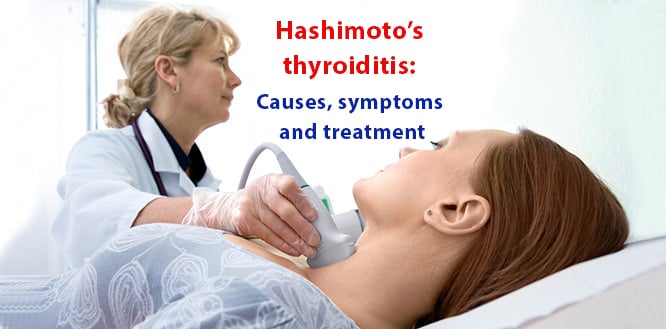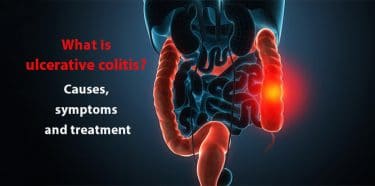
Table of Contents
What is Hashimoto?
Hashimoto is a serious autoimmune disease which can cause hypothyroidism or less release of thyroid. Similar to other autoimmune diseases, immune system attacks to healthy cells. It is also called as Chronic lymphocytic thyroiditis or Hashimoto’s disease. The disease was first described by Akira Hashimoto, a Japanese scientist, in 1912. It is one of the leading causes of hypothyroidism in developed countries.
Patients’ bodies produce high amount of anti TPOs in order to destroy thyroid gland. As a result, thyroid gland gets smaller and number of inflammatory cells in thyroid gland increases. If disease processes, it can cause thyroid insufficiency in patients.
Symptoms of Hashimoto
- Depression and anxiety
- Reasonless weight gain
- Sleep apnea
- Carpal tunnel syndrome
- Forgetfulness and difficulty in focusing on work
- Feeling exhausted and difficulty in breathing
- Constipation and indigestion
- Muscle pains and sensitivity in muscles
- Swelling and eburnation in joints
- Changes in hair tissue such as hair loss and hair weakening
- Swelling in eyes and face
- Thick and cracked skin
- Need for going to toilet often and extreme feeling of thirsty
- Loss of sexual desire and some other sexual dysfunctions
- Having cold and flu often due to weak immune system
- Menstrual irregularities such as huge variations in menstrual cycle and amenorrhea
These symptoms are similar to several other diseases’ symptoms. Therefore, doctors can sometimes misdiagnose patients considering these similarities.

Causes of Hashimoto
Thyroid gland is an endocrine gland which is placed in right under neck and has a form like butterfly. It releases the sufficient amount of thyroid hormone which is released to blood and carried to every tissue in our body. This hormone provides body with energy and necessary heat, and it makes heart, brain, muscles and other organs work properly.
Hashimoto is an autoimmune disease in which immune system creates antibodies against thyroid gland. Doctors do not know what makes immune system attack thyroid gland. While some scientists think that virus or bacteria can cause it, some others think there may be some genetic deficiencies. A combination of genetic susceptibility, gender and age can trigger development of Hashimoto’s thyroiditis.
Risk factors for Hashimoto
- Having autoimmune diseases such as autoimmune hepatitis, Addison’s Disease, coeliac disease, lupus, pernicious anemia, rheumatoid arthritis, vitiligo, and type-1 diabetes
- Being female: The disease is 8 times more common among women than men
- Having a family member with Hashimoto
- Being pregnant
- Smoking
Diagnosis of Hashimoto
For diagnostic purposes, doctors ask some questions about your medical history and your symptoms. They may also require some blood tests. Mostly, thyroid hormone levels are in normal range at the beginning of disease. However, TSH (thyroid stimulating hormone) levels decrease by time. Therefore, TSH levels should be measured in blood tests.
High TSH levels are usually indicators for hypothyroidism. Also, TPOs which are antithyroid antibodies can be searched in blood tests.
Blood tests are usually enough for diagnosis. Yet, if you do not have TPOs in your blood, then you may need a thyroid ultrasound to image thyroid’s condition. The presence of thyroid nodules and size of thyroid can be useful for diagnosis. Also, you may need brain MR to verify presence of hypothyroidism.
Hashimoto cancer
This disease significantly increases the risk of thyroid cancer which is also known as thyroid lymphoma. If you feel a palpable mass in your throat, you should go to doctor immediately to be free from possibility of cancer.
Hashimoto and thyroid
Hashimoto’s disease is a thyroiditis problem. Yet, it has distinctive issues than other thyroid diseases such as goiter and hyperthyroidism. When course of the disease gest processed, it may trigger the hypothyroidism and Addison’s disease.
Hashimoto during pregnancy
In pregnancy, hypothyroid development caused by Hashimoto can decelerate the development of baby’s mental functions and abilities. Therefore, all future mothers should check their thyroid gland functions before pregnancy.
If woman gets thyroid hormone during pregnancy, baby can be born in a healthy way. Also, pregnant women with Hashimoto should take sufficient amount of iodine.
Treatment of Hashimoto
The treatment can be very comprehensive. You need to do physical exercises, have a regular and balanced diet, and have changes in your life style in addition to taking medications.
Medications for Hashimoto
If your thyroid hormone levels are in normal range, then your doctor may prefer following the course of disease. In case of hypothyroid, you need to take medications known as thyroid hormones such as Levoxyl and Synthroid containing levothyroxine.
These medications are usually in tablet forms and they should be taken in mornings, when you are hungry. They are called as synthetic thyroid hormones and they imitate thyroid glands’ work. However, these medications cannot prevent immune system attacking itself for a whole life. Thus, you may need to use them for a life time.

6-8 weeks after starting to take these medications, you need to make another blood test to determine the right dose for you. Also, you should make these tests periodically in each 6 months or 1 year; and you should not stop taking them unless your doctor suggests so.
If medication treatment seems to be insufficient, surgical operation may be necessary. Moreover, regular physical exercises, consuming iodine and foods which help thyroid work better are treatment alternatives which all patients should attend.
Hashimoto and nutrition, Hashimoto diet
- Consume foods which strengthen immune system and are easy to digest
- Avoid foods including gluten. Have a nutritional habit without cereals for the sake of your fight against hypothyroidism and Hashimoto
- Consume pasteurized and homogenized milk
- Restrict consume of fast or packaged food. Avoid processed and refined food
- Avoid sugary food which can cause inflammation in your intestines. Have food which can heal thyroid in your diet
- Eat plenty of vegetables and fruits
- Increase consuming broth and organic meat which are easy to digest and beneficial for immune system
- Consume kefir and other probiotic food such as cabbage pickle, organic goat milk and organic goat yoghurt
- Consume fibrous vegetables which are rich in antioxidant, vitamin and mineral
- Eat fish and especially the ones which are rich in Omega 3
- Have soup with broth and casserole which are useful to get magnesium and phosphor in your diet.
Have additional nutrition for repairing thyroid
- Have supplementary food or pills rich in selenium to regulate T3 and T4 hormones, and to prevent Hashimoto risk in pregnancy
- Have D vitamins supplements in order to compensate D vitamin insufficiency and have sunbathes
- Have B12 vitamins supplements in order to compensate B12 insufficiency which is commonly seen among Hashimoto patients
Do not overuse iodine
- Consuming seaweed or other nutrients including high levels of iodine may put your thyroid in a worse condition
- In pregnancy, you may need slightly more iodine than usual. However, if you take it much, it may trigger goiter in your baby. Therefore, you should consult your doctor about the amount of iodine you should take during pregnancy
Herbal remedy for Hashimoto
Coconut oil
You may use coconut oil which is an effective pain killer and anti-inflammatory for the treatment of Hashimoto. It is widely used to treat autoimmune diseases since it can fight bacteria and strengthen immune system. You may use 2-3 tablespoons of solid coconut oil daily. Also, you may massage your neck with warm coconut oil in 2-3 times day.
White bedstraw cure
Add a pinch of white bedstraw to a glass of fresh and chlorine-free water, and boil the mixture. After 5 minutes of boiling, take the cure out and wait 5 minutes for it to become cooler. Filter cure and gargle with some of the liquid part of it. Drink the rest of the liquid. Apply this daily for one month.
Thistle seed tea
Thistle seed tea is very effective for removing toxic materials from the body, and so, it can be used to treat Hashimoto and hypothyroidism. Pestle 1 dessert spoon of thistle seed, and add them into a glass of boiled water. Let the mixture get cooler for 5 minutes. Filter it, and consume 3 glasses per day.
What if Hashimoto is not treated?
When Hashimoto is not treated properly, it can cause several damages such as ovary impairment, birth deficiencies in baby, other thyroid diseases like Addison and Graves, type-2 diabetes, high cholesterol, heart problems, psychological disorders like depression, neurological damage, brain and kidney problems and infections. Therefore, it is strongly recommended to see immediately a doctor if person has one or more symptoms mentioned above.
Is Hashimoto fatal?
Hashimoto is not a terminal disease directly. Yet, if it is not treated, it can cause serious complications such as heart diseases, kidney and brain problems. These problems can be fatal for patients.
Tips for Hashimoto patients
- Take your medications regularly, and do not stop taking them without consulting your doctor
- Take your disease seriously. Avoid nutrients which can damage your thyroid.
- Do not smoke
- Have successful coping mechanisms for stress to have a strong immune system. Take yoga and meditation trainings if you need
- Remember that disease can cause depression. If you need help, see a psychiatrist
- Do physical exercises regularly. Walk at least 30 minutes per day
- Try to improve your mood




